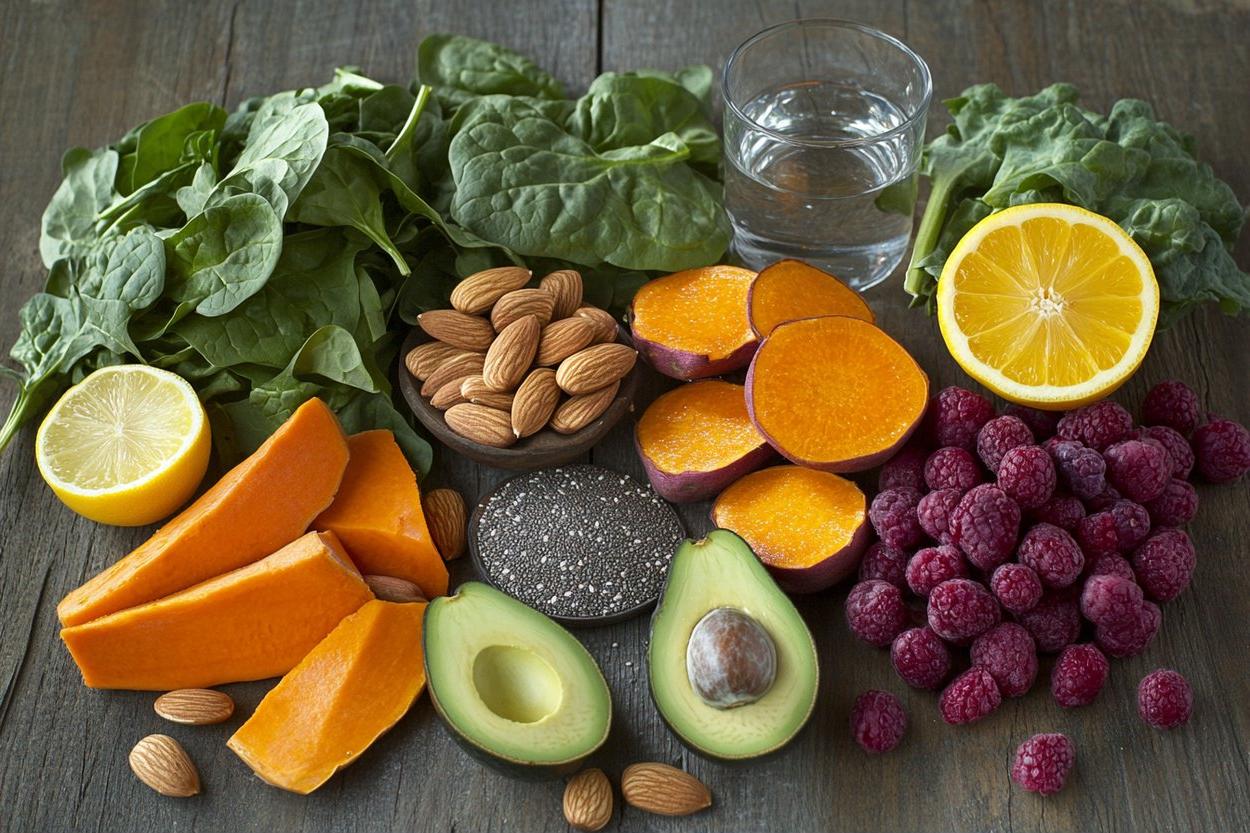Effective Dietary Strategies for Treating Constipation
Making constipation-friendly choices can help support healthy digestion. Including fiber-rich foods, staying hydrated, and keeping a regular routine may ease discomfort. Consulting a healthcare professional ensures these habits fit safely into daily wellness practices.

High-Fiber Foods That Promote Regular Bowel Movements
Dietary fiber is essential for healthy digestion and regular bowel movements. Soluble fiber absorbs water, creating softer stools that pass more easily, while insoluble fiber adds bulk and helps move waste through the digestive tract. Adults should aim for 25-30 grams of fiber daily for optimal digestive health. Gradually increasing fiber intake is important, as sudden increases may cause bloating or gas.
Whole grains provide excellent sources of fiber, including oatmeal, brown rice, quinoa, and whole wheat products. A single cup of cooked oatmeal delivers about 4 grams of fiber. Legumes offer even higher fiber content, with a cup of cooked lentils providing approximately 15 grams of fiber. Black beans, chickpeas, and split peas are similarly beneficial for promoting regularity.
Fresh fruits, especially those with edible skins and seeds, contribute significant fiber. Berries are particularly effective, with raspberries containing about 8 grams of fiber per cup. Pears, apples, and prunes have traditionally been recommended for constipation relief due to their combination of fiber and natural compounds that stimulate bowel movements.
Foods to Avoid When Experiencing Constipation
Certain foods can worsen constipation by slowing digestion or causing dehydration. Processed foods typically contain minimal fiber while often including ingredients that may contribute to digestive difficulties. White bread, refined pasta, crackers, and processed breakfast cereals typically have had most of their fiber removed during manufacturing. These refined carbohydrates can lead to slower digestion and more compact stools.
Dairy products cause constipation in some individuals, particularly those with lactose intolerance or sensitivity. Cheese, ice cream, and full-fat milk may be especially problematic. While dairy provides important nutrients, those prone to constipation might benefit from monitoring their intake and noticing any correlation with digestive symptoms.
High-fat foods, particularly those containing saturated fats, tend to slow digestion and can contribute to constipation. Fast food, fried items, and heavily processed meats fall into this category. These foods are typically low in fiber while being high in fat and calories, creating a combination that may lead to digestive difficulties. Similarly, foods high in tannins, such as red wine and black tea, may have mild constipating effects in sensitive individuals.
Hydrating Foods and Beverages for Constipation Relief
Proper hydration is essential for preventing and relieving constipation. Water softens stool and helps fiber work effectively in the digestive system. Most adults should aim for approximately 8-10 cups of fluid daily, with additional needs for those exercising or in hot weather. Dehydration is a common yet easily overlooked cause of constipation.
Water-rich fruits and vegetables contribute significantly to overall hydration while providing valuable fiber. Watermelon, cucumber, celery, and strawberries all contain over 90% water by weight. Consuming these foods regularly helps maintain proper hydration levels while supporting digestive health. Zucchini, cantaloupe, and oranges also offer excellent hydration benefits along with essential nutrients and fiber.
Broth-based soups combine hydration with nutrients and can be particularly beneficial when experiencing constipation. Clear vegetable broths or light chicken soups provide fluids while being easy to digest. Herbal teas, particularly those containing natural laxative compounds like senna or dandelion, may provide additional relief. Warm liquids in general can help stimulate digestive movement while contributing to overall hydration.
Natural Remedies and Supplements for Constipation
Beyond everyday foods, certain natural remedies have demonstrated effectiveness for constipation relief. Prunes (dried plums) contain natural compounds called sorbitol and phenolic compounds that act as natural laxatives. Research suggests consuming 100 grams (about 10 prunes) daily can significantly improve stool frequency and consistency in people with constipation.
Flaxseeds provide both soluble and insoluble fiber along with healthy omega-3 fatty acids. Ground flaxseeds are more digestible than whole seeds and can be easily incorporated into smoothies, yogurt, or oatmeal. Two to three tablespoons daily, accompanied by adequate water, may help regulate bowel movements. Similarly, chia seeds absorb water and expand in the digestive tract, helping to soften stool and promote elimination when consumed with sufficient fluids.
For persistent constipation, fiber supplements containing psyllium, methylcellulose, or wheat dextrin may be beneficial. These supplements should always be taken with plenty of water to prevent potential blockages. Magnesium-rich foods or supplements may also help by drawing water into the intestines and relaxing the bowel muscles, though excessive amounts can cause diarrhea.
Creating a Balanced Diet Plan for Long-Term Digestive Health
Developing sustainable eating habits is key to preventing chronic constipation. A balanced approach includes consuming 25-30 grams of fiber daily from diverse sources, maintaining proper hydration, and establishing consistent meal timing. Regular physical activity complements these dietary strategies by stimulating natural contractions of intestinal muscles.
A sample day of constipation-friendly eating might include oatmeal with berries and ground flaxseed for breakfast, a lunch salad with beans and olive oil dressing, afternoon snacks of fruit with nuts, and a dinner featuring lean protein with plenty of vegetables and whole grains. This pattern provides consistent fiber intake throughout the day while incorporating hydrating foods and healthy fats that support digestion.
Consistency matters significantly in preventing constipation. Eating meals at regular times helps establish predictable bowel movements, while sudden dietary changes can disrupt digestive patterns. Gradual implementation of dietary modifications typically yields better results than dramatic overnight changes, which may cause temporary digestive discomfort.
This article is for informational purposes only and should not be considered medical advice. Please consult a qualified healthcare professional for personalized guidance and treatment.




